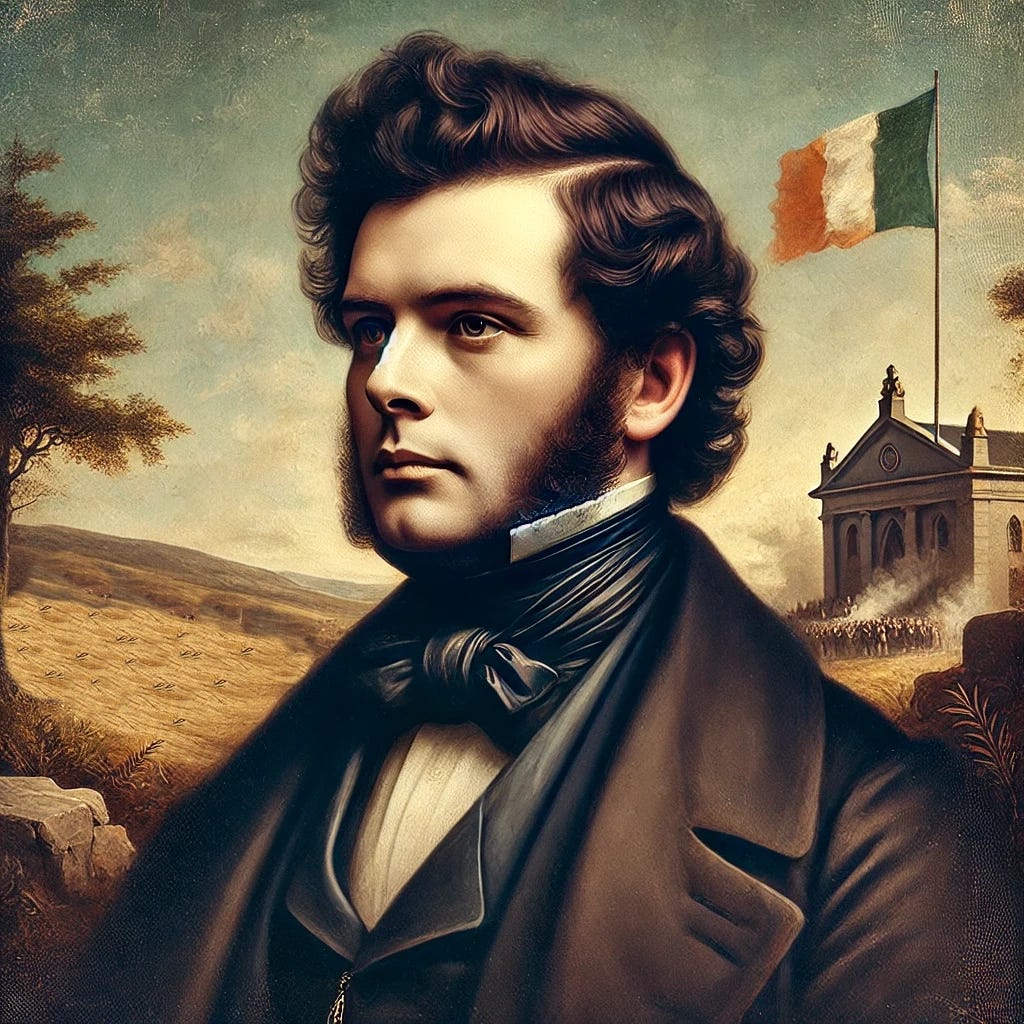Daniel O’Connell: The Man Who Led Ireland to Emancipation
Daniel O’Connell, often called "The Liberator," was one of the most influential political figures in Irish history. A visionary leader, an eloquent orator, and a master strategist, he spearheaded the movement for Catholic emancipation in the early 19th century, ultimately securing the rights of Irish Catholics to sit in the British Parliament. His relentless pursuit of justice, combined with his commitment to peaceful protest, reshaped Ireland’s political landscape and laid the foundation for future movements advocating for Irish independence.
Early Life and Education
Born on August 6, 1775, in County Kerry, Daniel O’Connell grew up in a relatively prosperous Catholic family. At the time, Ireland was under British rule, and Catholics faced severe legal restrictions under the Penal Laws. Despite these limitations, O’Connell’s family ensured he received an excellent education. He studied in France during the French Revolution, an experience that exposed him to both the ideals of liberty and the dangers of violent uprisings. This early exposure deeply influenced his belief in achieving change through legal and nonviolent means.
After returning to Ireland, O’Connell trained as a lawyer, becoming one of the most skilled barristers of his time. His legal career not only provided him with financial stability but also sharpened his rhetorical abilities and deepened his understanding of the oppressive legal system that governed Ireland.
The Fight for Catholic Emancipation
By the early 19th century, Catholics in Ireland were still denied basic rights, including the ability to sit in Parliament. O’Connell recognized that meaningful change could only be achieved through mass political organization and public pressure. In 1823, he founded the Catholic Association, an organization dedicated to securing equal rights for Catholics.
What made the Catholic Association revolutionary was its grassroots approach. O’Connell introduced the "Catholic Rent", a small weekly subscription that allowed even the poorest Irish people to contribute to the movement. This funding mechanism enabled the Association to spread its message widely and sustain its political activities. Soon, it became a nationwide movement, drawing support from people across all classes.
The turning point in O’Connell’s campaign came with the Clare by-election of 1828. Despite the fact that Catholics were legally barred from holding parliamentary seats, O’Connell decided to run for office in the County Clare election. His victory sent shockwaves through the British establishment, forcing the government to confront the issue of Catholic emancipation. Recognizing the growing unrest in Ireland, the Duke of Wellington and Robert Peel, both previously opposed to Catholic rights, reluctantly supported the Catholic Relief Act of 1829, which granted Catholics the right to sit in Parliament.
O’Connell’s Legacy and Later Years
With the passage of Catholic emancipation, O’Connell became the first Catholic MP in over 100 years. However, his ambition extended beyond Catholic rights—he now set his sights on the Repeal of the Act of Union, which had merged Ireland and Britain into a single political entity in 1801. Through the Repeal Association, he organized massive rallies known as "Monster Meetings", which drew hundreds of thousands of people advocating for an independent Irish Parliament.
However, O’Connell’s nonviolent methods were met with increasing resistance from the British government. In 1843, fearing an uprising, British authorities banned one of his major meetings, leading to his arrest. Though he was later released, his influence began to wane.
By the late 1840s, O’Connell’s health deteriorated, and Ireland faced the horrors of the Great Famine. Heartbroken by the suffering of his people, he embarked on a pilgrimage to Rome but died on the journey in Genoa, Italy, in 1847.
The Lasting Impact of The Liberator
Daniel O’Connell’s contributions to Irish history cannot be overstated. His peaceful but relentless pursuit of Catholic emancipation set a precedent for nonviolent political activism that influenced later figures such as Mahatma Gandhi and Martin Luther King Jr. He proved that mass organization and public pressure could achieve political reform without resorting to violence.
Even though he did not achieve full Irish independence in his lifetime, his work inspired later nationalist movements, including Charles Stewart Parnell’s Home Rule campaign and the eventual fight for Irish sovereignty in the 20th century. Today, O’Connell’s name is honored throughout Ireland, with Dublin’s main thoroughfare, O’Connell Street, named in his memory.
His legacy as The Liberator remains a testament to the power of peaceful resistance, legal activism, and unwavering dedication to justice.




